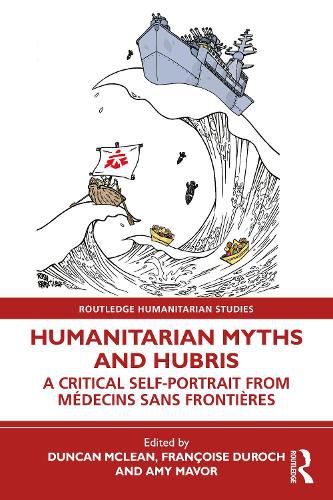Readings Newsletter
Become a Readings Member to make your shopping experience even easier.
Sign in or sign up for free!
You’re not far away from qualifying for FREE standard shipping within Australia
You’ve qualified for FREE standard shipping within Australia
The cart is loading…






This book explores the shifting role and relevance of humanitarian action today, through the prism of Medecins Sans Frontieres / Doctors Without Borders (MSF).
Initially created to provide healthcare to the most vulnerable populations in crisis-stricken countries, MSF has grown from just a few dozen members in 1971 to a movement with over 60,000 people and an annual budget of over 2 billion euros. But in today's rapidly changing global landscape, many of the founding principles and idealised myths surrounding organisations such as MSF are questioned, challenged, or undermined. This book considers the profound changes impacting the sector, from questionable adherence to international humanitarian law, to increased rates of forced displacement, hostile state policies, climate-induced factors, and pressures for organisations to decentralise. The book considers whether MSF's organisational model and ways of working are still fit for purpose, and what evolutions are necessary to meet the medical humanitarian needs of today.
This important and candid self-critical analysis will be an important read for humanitarian practitioners, and for students and researchers working on the humanitarian sector.
$9.00 standard shipping within Australia
FREE standard shipping within Australia for orders over $100.00
Express & International shipping calculated at checkout
This book explores the shifting role and relevance of humanitarian action today, through the prism of Medecins Sans Frontieres / Doctors Without Borders (MSF).
Initially created to provide healthcare to the most vulnerable populations in crisis-stricken countries, MSF has grown from just a few dozen members in 1971 to a movement with over 60,000 people and an annual budget of over 2 billion euros. But in today's rapidly changing global landscape, many of the founding principles and idealised myths surrounding organisations such as MSF are questioned, challenged, or undermined. This book considers the profound changes impacting the sector, from questionable adherence to international humanitarian law, to increased rates of forced displacement, hostile state policies, climate-induced factors, and pressures for organisations to decentralise. The book considers whether MSF's organisational model and ways of working are still fit for purpose, and what evolutions are necessary to meet the medical humanitarian needs of today.
This important and candid self-critical analysis will be an important read for humanitarian practitioners, and for students and researchers working on the humanitarian sector.